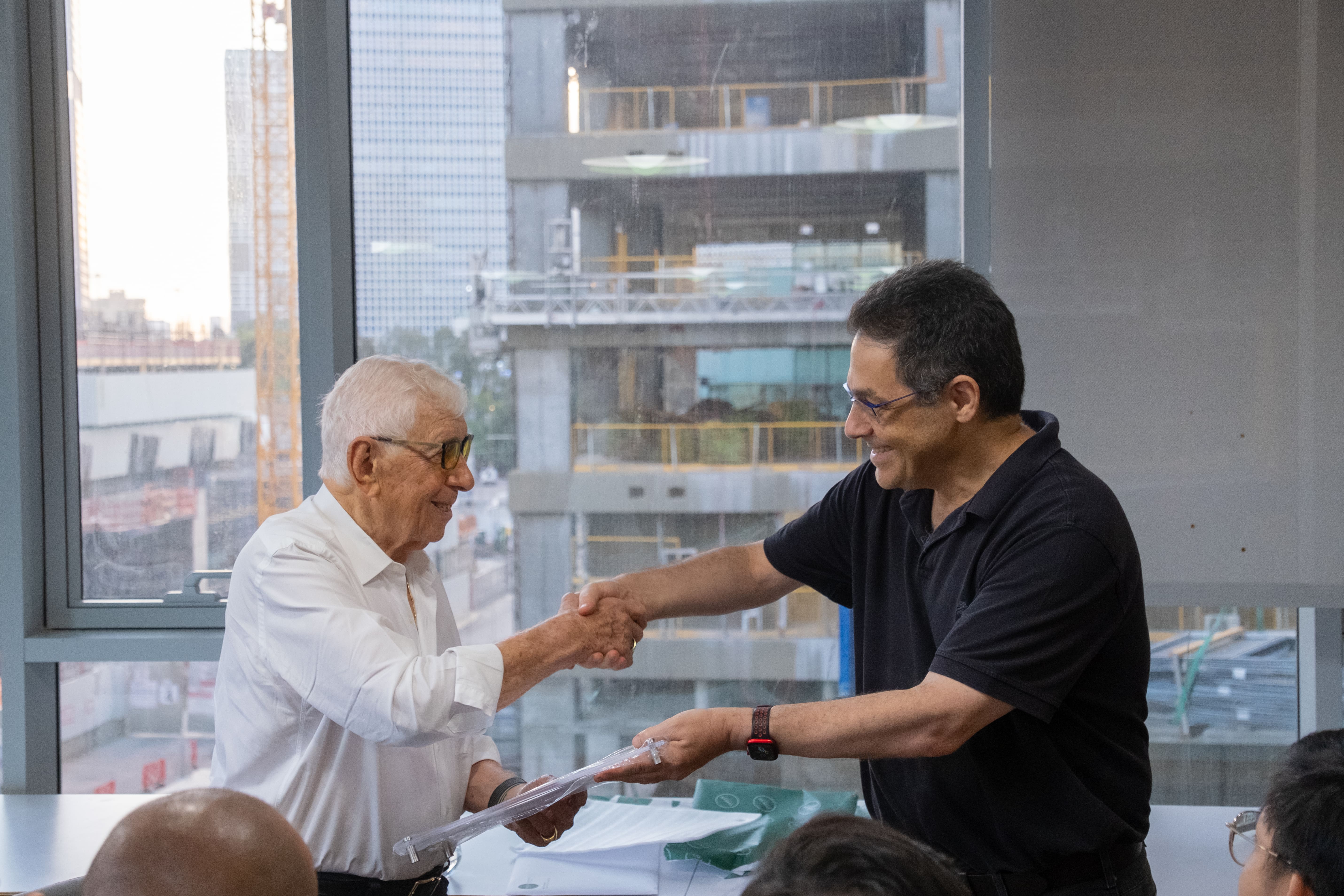We ended our course on a high note, with the honor to spend 90 minutes with Sir Frank Lowy. Lowy can be described in several impressive ways - holocaust survivor, founder of the Westfield Group, father of three. Born in 1930 in Slovakia, he moved to Australia at the age of 26, where he became a prolific businessman. Given his impressive career, a lot has been written about him. Here we wanted to share some of the special nuggets of wisdom and personal anecdotes one can only get in a more intimate conversation with him.
He was forced to live in a ghetto in Hungary after the German occupation of the country, and wanted to move to the international ghetto in Sweden where living conditions were, albeit difficult, better. He spotted a costume shop and rented the uniform of a telegram boy. Stating he has telegram for the ambassador, he was able to get a Swedish passport for both him and his mother. It was a “miracle” that he was able to get this passport, he explained.
After retiring from the Israeli army, he moved to Australia with his mother and brother. Immigrants were streaming into Australia at the time, and he noticed that the food was very simplistic. Along with another Jewish man, he opened a delicatessen selling Eastern European food like salami that grew to be very successful; he sold it after 2.5 years, and 10 years after its opening it traded on the NYSE.
But he didn’t just discuss his successes; he candidly told us how he had learned from challenges and failures too. In the early 70s, an acute credit squeeze suddenly made it difficult for him to continue paying the bills for Westfield, which was already a public company. To get around this, he paid employees and every subcontractor 50% of the amounts they needed to make their own payments. Importantly, he explained that everybody “waited patiently to get paid because both subcontractors and employees trusted them.” He “had a good name as a company and personally”.
“To build trust with shareholders, employees and contractors is the most important thing a company can do”
Later in his life, he decided to take over a major television network in Australia while running Westfield. He admitted that this decision was born out of hubris and recognized that the acquisition didn’t end well. The executive who was supposed to join him and lead it backed out the day the deal was finalized. But he openly admitted his mistake at the time and owned responsibility for the aftermath. One of the lead investors in the acquisition was so impressed by his honesty that he invited him to join his company’s board, despite losing money on investment.
“Don’t ever blame anyone for your mistake. Even if it’s not your mistake, you’re the head and you need to take responsibility”
“I’m very proud of my achievements but I’m not perfect”
“Normally when you admit your mistakes people do forgive you”
He built Westfield with his 3 sons and ran it with them for forty years. They used to “work together, cry together and laugh together” and “remained friends and family through a lot of disagreements”.
We “always played the ball and not the man”, he recalled.
We asked him to share some insights from his generous philanthropic efforts.
“When you have a little give a little. When you have a lot give a lot.”
He was CEO of Westfield at 80 years old, and even today at 93 remains active in many endeavors.
“The word retire I don’t know what that means”
“As long as I can breathe, I want to produce”
“I take life seriously and don’t waste it”
“At 93, I still do whatever I can do. I don’t want to waste one minute”
